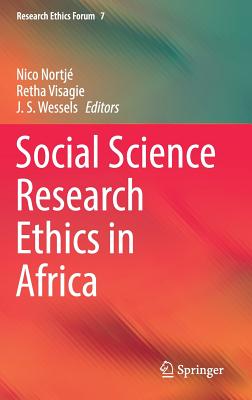AI in and for Africa: A Humanistic Perspective
暫譯: 非洲的人工智慧:人文視角
Brokensha, Susan, Kotzé, Eduan, Senekal, Burgert A.
商品描述
AI in and for Africa: A Humanistic Perspective explores the convoluted intersection of artificial intelligence (AI) with Africa's unique socio-economic realities. This book is the first of its kind to provide a comprehensive overview of how AI is currently being deployed on the African continent.
Given the existence of significant disparities in Africa related to gender, race, labour, and power, the book argues that the continent requires different AI solutions to its problems, ones that are not founded on technological determinism or exclusively on the adoption of Eurocentric or Western-centric worldviews. It embraces a decolonial approach to exploring and addressing issues such as AI's diversity crisis, the absence of ethical policies around AI that are tailor-made for Africa, the ever-widening digital divide, and the ongoing practice of dismissing African knowledge systems in the contexts of AI research and education. Although the book suggests a number of humanistic strategies with the goal of ensuring that Africa does not appropriate AI in a manner that is skewed in favour of a privileged few, it does not support the notion that the continent should simply opt for a "one-size-fits-all" solution either. Rather, in light of Africa's rich diversity, the book embraces the need for plurality within different regions' AI ecosystems. The book advocates that Africa-inclusive AI policies incorporate a relational ethics of care which explicitly addresses how Africa's unique landscape is entwined in an AI ecosystem. The book also works to provide actionable AI tenets that can be incorporated into policy documents that suit Africa's needs.
This book will be of great interest to researchers, students, and readers who wish to critically appraise the different facets of AI in the context of Africa, across many areas that run the gamut from education, gender studies, and linguistics to agriculture, data science, and economics. This book is of special appeal to scholars in disciplines including anthropology, computer science, philosophy, and sociology, to name a few.
商品描述(中文翻譯)
《非洲的人工智慧:人文視角》探討了人工智慧(AI)與非洲獨特社會經濟現實之間錯綜複雜的交集。本書是首部全面概述人工智慧在非洲大陸當前應用情況的著作。
考慮到非洲在性別、種族、勞動和權力方面存在顯著差異,本書主張該大陸需要針對其問題的不同人工智慧解決方案,而這些解決方案不應建立在技術決定論或僅僅依賴歐洲中心或西方中心的世界觀上。它採取去殖民化的方式來探索和解決問題,例如人工智慧的多樣性危機、缺乏專為非洲量身定制的人工智慧倫理政策、日益擴大的數位鴻溝,以及在人工智慧研究和教育中持續忽視非洲知識體系的做法。雖然本書提出了多種人文策略,旨在確保非洲不會以偏向特權少數的方式來採用人工智慧,但它也不支持大陸應該簡單選擇「一刀切」解決方案的觀點。相反,考慮到非洲的豐富多樣性,本書強調不同地區的人工智慧生態系統中需要多元性。本書主張,包容非洲的人工智慧政策應納入關係倫理的關懷,明確解決非洲獨特的地理環境如何與人工智慧生態系統交織在一起。本書還致力於提供可行的人工智慧原則,這些原則可以納入符合非洲需求的政策文件中。
本書將對希望批判性評估非洲背景下人工智慧不同面向的研究者、學生和讀者產生極大興趣,涵蓋教育、性別研究、語言學、農業、數據科學和經濟學等多個領域。本書特別吸引人類學、計算機科學、哲學和社會學等學科的學者。
作者簡介
Susan Brokensha is an applied linguist at the University of the Free State, South Africa, and co-convenor of the ethics and governance group located in the Interdisciplinary Centre for Digital Futures (ICDF) at the university.
Eduan Kotzé is Associate Professor and Head of the Department of Computer Science and Informatics at the University of the Free State.
Burgert A. Senekal is a Research Fellow in the Department of Computer Science and Informatics at the University of the Free State.
作者簡介(中文翻譯)
Susan Brokensha 是南非自由州大學的應用語言學家,也是該大學數位未來跨學科中心(ICDF)倫理與治理小組的共同召集人。
Eduan Kotzé 是自由州大學計算機科學與資訊學系的副教授及系主任。
Burgert A. Senekal 是自由州大學計算機科學與資訊學系的研究員。


























